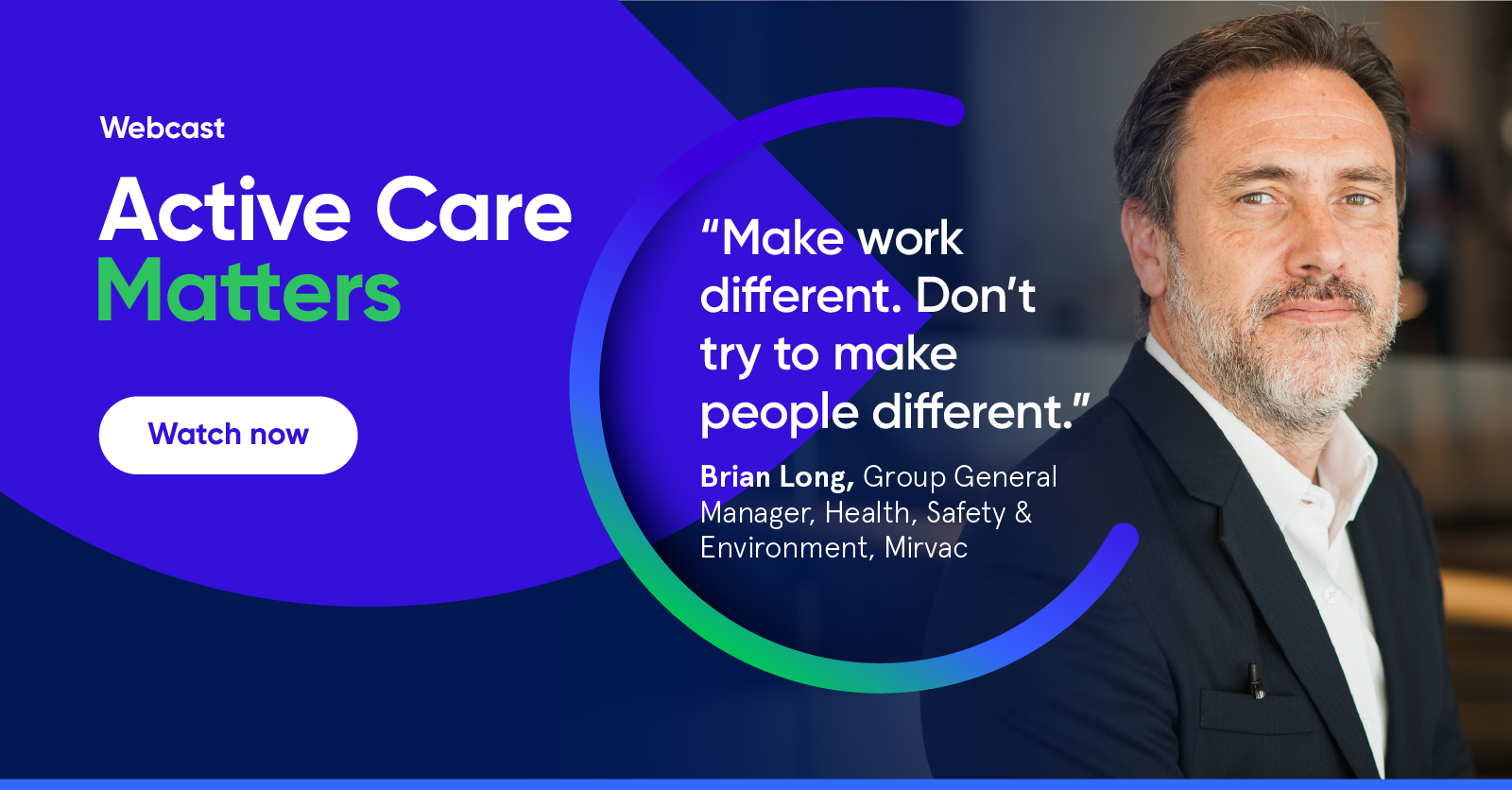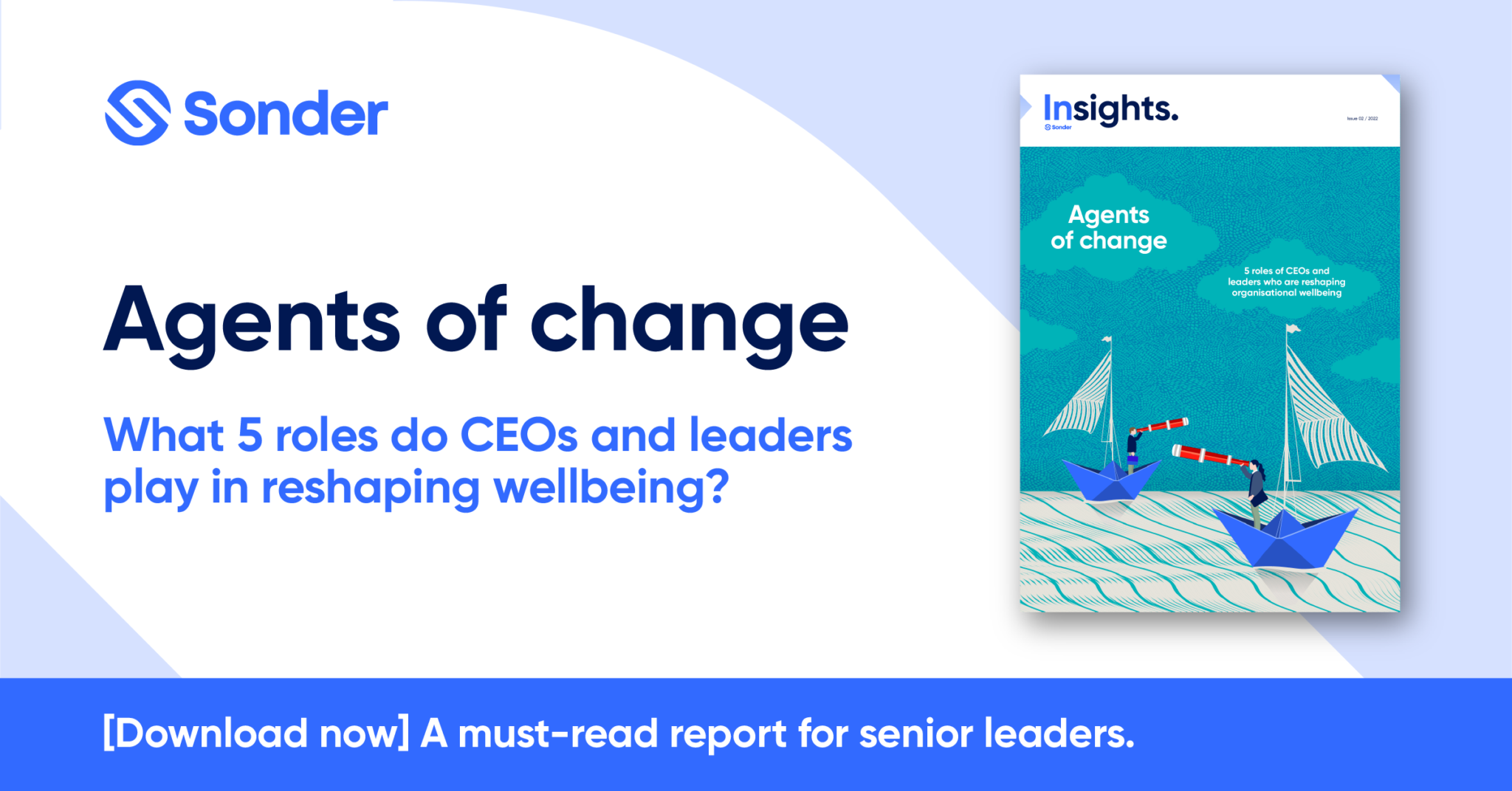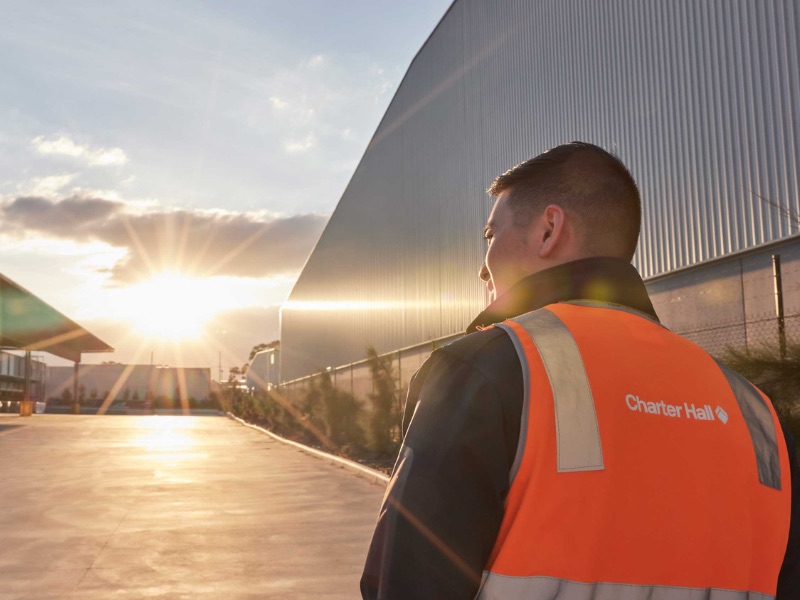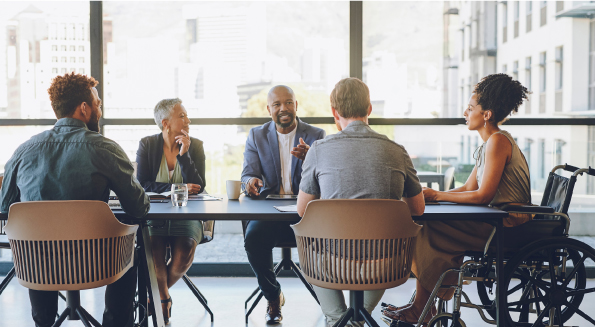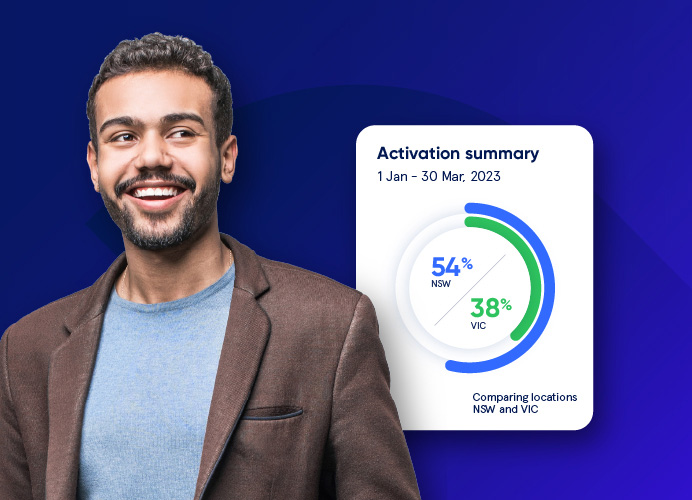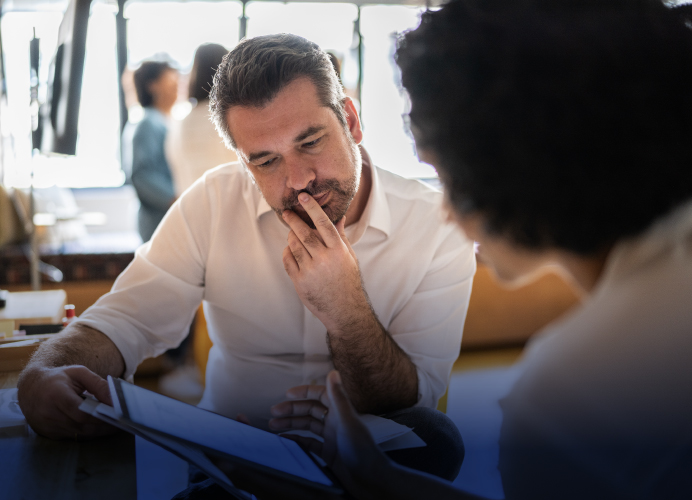Mirvac’s Brian Long talks leadership, self-care, and workplace wellbeing [Video] [1 of 2]

Insights.
Recently, our CEO Craig Cowdrey had the pleasure of talking with Mirvac's Brian Long about leadership, self-care, psychosocial risk, shared responsibility, workplace wellbeing, and the different expectations of younger generations. Their conversation delivers some great insights into how a prominent health and safety leader approaches workplace wellbeing and the setting of work/life boundaries.
Video (Part 1)
The first part of Craig and Brian's conversation focusses on leadership, self-care, workplace wellbeing, and the different expectations of younger generations.

Transcript (Part 1)
Craig Cowdrey:
Hello and welcome to Active Care Matters. I'm Craig Cowdrey, Co-founder and CEO at Sonder. Today we're delighted to be joined by Brian Long, who'll be sharing his views on the most important drivers in creating a high-performing culture in the workplace. We'll be discussing our health and wellbeing policies that are being redesigned to meet an ever-changing set of employee needs, how our evolving work environment needs to consider health, safety and wellbeing more than ever before, and how this all relates to the bottom line and how we actually measure wellbeing impacts.
So, let me start with a bit of an introduction for you, Brian.
Brian is a highly influential health, safety and risk wellbeing leader who I have had the pleasure to know for nearly three years now. He's had an amazing career, which has taken him all over the world, including 18 years in various roles across Europe and Asia-Pac at Lendlease, followed by a couple of years in Spain actually, at the engineering consulting firm AECOM. He then moved to Australia, where he led health and safety at Woolworths Group. Currently, Brian is Group General Manager for Health, Safety and Environment at Mirvac. Brian, thanks for joining us.
Brian Long:
My pleasure.
Craig Cowdrey:
Now, to kick us off, I mentioned that you worked at Woolworths, leading health, safety and wellbeing. Now Woolworths has over 200,000 staff. You joined just before COVID. So, I'll be interested to take you back in time if it's not too traumatic to talk about your experience in leading such a critical function at Woolworths.
But, I actually might start with how you cared for yourself during that period. Now, we know it was an incredibly stressful time for a lot of people, particularly Woolworths, because it was feeding the country - supply chain disruptions, staffing issues and their own health and safety around COVID, but also dealing with customer aggression and the like, you had a lot of that on your shoulders, but how did you take care of yourself during that period?
Brian Long:
Yeah, firstly, very pleased to be here, and it isn't too traumatic to go back. I actually have very fond memories of that time. I think the first thing I would say around that is, fundamentally, I was very keen to always distinguish between work and home, and work and family.And that was quite a difficult thing to do for all of us because we were working, most of us, from home for large periods during the course of the pandemic.
But I would introduce a couple of rituals into my day, whereby I would ensure that I would "get dressed up for work" and then I would go to the place where I would be sitting - in front of a computer, taking calls, and ultimately being, both in body and in mind, engaged with the work that I was doing. Much like I would have been doing if I actually had been in the office.
But I would then make a deliberate point of, when the day was over, getting out of that work attire, making a disconnect between the place that I was operating from and then shifting my brain into family and being totally present and totally engaged with my family.
So, I guess a physical kind of manifestation of a cut-off point. And then being very comfortable with the fact that I was surrounded by my family.
And the second thing I'd say, which is, again, why I have some fond memories of the Woolworths experience, as you said in your very kind introduction, I've probably spent the best part of 20 years travelling extensively around the world, so for me actually, the opportunity to be physically present with my family for almost two years, wake up in the same bed, go to the same bed every night and wake up in the same bed every morning, was a massive novelty for me. And to be able to have that very close to me, I actually looked at that in a very positive way.
So, I guess from craziness and commotion and just a very, very hectic time, I found that positivity from the fact that it gave me the opportunity to spend some precious time with my family. So, I guess those two things made it a doable and workable experience.
Craig Cowdrey:
Amazing. And now, coming out of COVID, how have you taken that mindset and those rituals forward into this new world, which I want to talk to you quite a bit about in terms of policies and approaches of different organisations around safety, health and wellbeing? But for yourself, have you taken some of those forward with you? Have you thought that some maybe aren't as relevant and maybe won't work going forward? Interested to know.
Brian Long:
Yeah, look, I think at the core, the essence or the intent of those things, work, irrespective of the situation or the context or that you're operating within - and I certainly, I think, have a different perspective of the important role that family can play in grounding you, in making you see that yes, work is very important and we're all very focused on being responsible and being present at work, but I guess if I'm a little bit critical of myself, I wonder was I that present with my family prior to COVID. So, certainly, that has served me as a great wake-up call and something that I actively do know going forward.
And I'm able to make that delineation, where at all possible, between I'm at work and I'm now with my family. And I don't feel as if I'm letting either side down when I'm in my moment, or I'm present for work or, I'm present with my family. I actually feel it's quite a natural thing for me to try and nurture and make happen.
So, that's probably the one thing that I've really held onto. And I'd be quite keen to communicate that to many people, because I do think you have to make that delineation - it's pretty important.
Craig Cowdrey:
Yeah, absolutely. And in terms of what you might be able to convey to other people who are listening to this or watching this around how they can approach a situation at least similar to what you experience as an executive at a large organisation that is facing the challenge of the type of COVID.
But even - I mean, I hope we don't go through a challenge like that again anytime soon - but if you had to name the top two or three tips that you would give for people to keep in mind in how they approach it from a leadership perspective, from an executive perspective, from a strategy perspective, it'd be great to get that insight as well.
Brian Long:
Sure. I mean, I think the first thing that comes to mind is most definitely, as a leader, there is a certain obligation on you to be the sort of visible face for some of the things that we'll talk about today.
And that can be kind of interpreted two ways. Some people can feel the weight or the burden of that, or other people can see that yes, it's an expectation, and I have to lean into that, but I guess the trick for me is that they understand how important self-care is in being able to lead and being able to be the leader that people need them to be.
So, I guess point number one I would make is, particularly for executives or people that are in important managerial positions, you have to focus on self-care. You have to find your techniques, you have to find your way, your kind of, I guess, equivalent to what I did. It might be yoga, it might be exercise, it might be doing things that make you feel good, but you have to find a way to prioritise your own self-care.
And I think once you start to build that into your routine, it becomes somewhat second nature. Then you are better equipped to be able to say, okay, now how am I going to be, or how I am going to lead for my people?
And that kind of leads to the second thing I would say, and I think the most important thing in that context, when you are engaging with people, is empathy, and being as empathetic and understanding of the needs of others, notwithstanding you have to deal with so many different people with so many different needs.
But one thing I've found, and certainly in engaging with leaders who have inspired me, is they always make you feel very important, and no matter how trivial or trite the issue that you might be bringing to them, you just felt like they cared and they were listening attentively to what your needs might be.
So, I guess point number two I would make in addition to self-care is, you've got to be willing to actively listen, to enquire and to ultimately demonstrate that level of empathy towards the people that you work with.
And then I think the last thing is, you're not going to always get this right; we're dealing with human beings, we're dealing with over-complex scenarios, there's a sociotechnical component to this, where you've got technical issues butting up against human issues.
And so, don't be overly critical or don't be overly perfectionist in the way that you go about trying to do this. Always bring it back to that essence of, well why am I engaging with my people, and what am I trying to do here?
I might argue that ultimately what most forward-thinking companies today, or good leaders today, are trying to do, is their trying to care for their people in a responsible and appropriate manner. And if I think you can keep those three things front of mind, then you'll be on the right path to doing some of the things we're talking about today.
Craig Cowdrey:
Yeah, absolutely. And I recall from my own experience, and we have a lot of people at Sonder with military backgrounds, that one of the early things that you learn is that you need to be able to care for yourself. And it's similar to the first stage, it's hard to help anyone else if you've not taken care of yourself first. But it's also really important to set an example to everyone else that, not only is it okay, it's actually what they should be doing in making sure that they're really exercising that self-care.
And now, in today's society, certainly over the last ten years, there's a real change in recognition of wellbeing, and whether that comes to fitness, mental health, nutrition and so on, a real explosion, a positive explosion of interest in this space.
How do you think that that's really changed employee expectations around working with their employer to be the best version of themselves, to be really happy and healthy?
Brian Long:
I think there's some fascinating things happening in the world of work at the moment. You've got different generations all working together, with probably different expectations around some of the things that you've just referred to.
But at a very basic level, particularly the younger generations, I don't think it's a request anymore, I think it's a demand.
So, people are coming to work and expecting that it's not going to be a badge of honour to work 22 hours and sort of be flogged into submission anymore, it's actually, you respect me as a human being, you give me the tools and the capacities to do my work properly, I commit to delivering upon those, but I also commit to living my life and having some opportunity to enjoy my life outside of work.
And that's becoming more and more apparent as you engage, particularly, as I say, with younger generations.
Craig Cowdrey:
So, in your world, Brian, how have you seen that affect policies that organisations are developing and implementing to really meet that - what is really a demand from employees, and it's just part of their experience?
Brian Long:
I think Mirvac has become quite renowned for embracing a couple of things. One is the diversity angle - we absolutely embrace people's individuality. And that's on so many different levels. And you can see that in the types of people that come to work at Mirvac and just the way that the culture and the environment absolutely encourages people to be their real self, to be able to say what they really think, that psychological safety component that I think we do relatively well in most of our settings.
The other thing that we've worked very hard on is flexibility. And again, I think the flexible working policy that is being introduced - pre-COVID I may add, in the context of Mirvac - is certainly setting us apart. And I know the feedback from so many people is this is an amazing place to work because, yes, you expect me to do A, B, C, but you cater for both my individuality but also just my needs in terms of a person with family or with other things that I may need to bring to the equation.
So, they are probably two of the big callouts. I would say in our industry, it's quite interesting as well to highlight - particularly in the baby-boomer space - I think it was kind of pretty normal to be uber resilient to the point of probably almost killing yourself in terms of the hours worked, or the amount of travel between different sites, or the bad diet, or just the - I'm tough because I can lift heavy weights - or whatever the case may be.
Craig Cowdrey:
Really a badge of honour that was worn in that way.
Brian Long:
Absolutely. And now, to see that kind of being challenged is quite interesting. And, in a way, it was the same at Woolworths.
And I do think this is probably the missing bit still in most industries, and that is, we've got to move beyond people caveating - yeah, we're very committed to your wellbeing, or we've very committed to allowing you to be your real self, but it's tough in construction. Or, retail's pretty tough because we have to work all those hours. There's always that caveat or that "but".
And I think the real unlock for the next five to ten years will be, actually no, there's no buts here, this is…we can do our work, but we can respect people and enable them to be at their best. And we've got to find a way to make work different, not make people different.
And that's the kind of interesting equation and dynamic that's starting to be played up.
And I think the companies that figure that out, employers of choice, they'll kick on, the companies that…
Craig Cowdrey:
Those are the stakes, right? I mean…
Brian Long:
Correct, that's exactly right. I think we're in that world of those that will find that and find a way; they'll be the successful organisations.
Want to see part two?
If you enjoyed part one of Brian Long's interview, we invite you to look out for our next post, which will share the video and transcript from part two (which talks about psychosocial risk, shared responsibility, and employee wellbeing).
Alternatively, you can jump to the full interview now here.
Download our Agents of change guide
This guide aims to:
- Explain five roles of CEOs and leaders who are reshaping organisational wellbeing;
- Share case studies from Accor, Atlassian and Woolworths; and
- Help you understand how to lead and build a healthier organisation.
Want to learn more?
For more information about how Sonder can help you rethink your student and employee support, we invite you to contact us here.
About Sonder
Sonder is an Active Care technology company that helps organisations improve the wellbeing of their people so they perform at their best. Our mobile app provides immediate, 24/7 support from a team of safety, medical, and mental health professionals - plus onsite help for time-sensitive scenarios. Accredited by the Australian Council on Healthcare Standards (ACHS), our platform gives leaders the insights they need to act on tomorrow's wellbeing challenges today.
Related posts
There's so much more to share
Sonder is reimagining health, safety and wellbeing support. Sonder proves human centric care leads to earlier intervention. Sonder impacts one person at a time to drive meaningful change across an organisation. Sonder understands people and how to support them.

